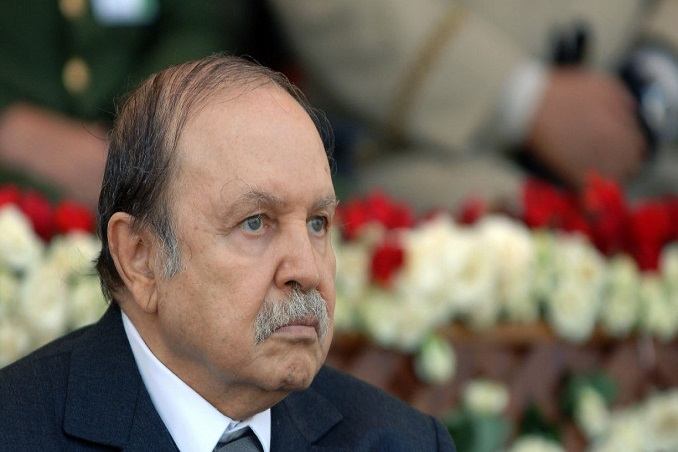Former Algerian President Abdelaziz Bouteflika, who fought for independence from France, brought his conflict-torn country together, and was deposed in 2019 by pro-democracy protestors after two decades in power, has died at the age of 84, according to state television. The local channel’s broadcast did not explain the cause of death or provide specifics on burial plans, citing a statement from incumbent President Abdelmadjid Tebboune’s office.
Bouteflika had a stroke in 2013 that left him severely disabled. Concerns about his health, which were kept hidden from the Algerian people, added to the nation’s dissatisfaction with his 20-year, tainted leadership. His departure was precipitated by mass public protests organized by the Hirak organization. Since his fight for independence from colonial master France in the 1950s and 1960s, Bouteflika has earned a reputation as a deft political chameleon.
As Algeria’s long-serving foreign minister, he stood up to Henry Kissinger, successfully negotiated with the terrorist known as Carlos the Jackal to free oil ministers kidnapped in a 1975 attack on OPEC headquarters, and assisted in the reconciliation of Algerian citizens after a decade of civil war between radical Muslim militants and Algeria’s security forces.
“I’m an anti-establishment politician. ‘I’m a revolutionary,” Bouteflika told The Associated Press on the eve of his first presidential victory in 1999, following a campaign marred by allegations of fraud that forced his six opponents to withdraw from the election. When Bouteflika took president, he promised to “finally turn the sad pages of our history to work for a new era.” Bouteflika was born in the Moroccan border town of Oujda on March 2, 1937, to Algerian parents. He was one of Algeria’s most enduring politicians.
Bouteflika joined the National Liberation Army (NLA) in 1956, which was founded to fight Algeria’s violent independence war. He was in charge of the southern Mali front and sneaked into France. Bouteflika became Algeria’s foreign minister after the war ended at the age of 25, at a time when the country was a model of doctrinaire socialism linked to the Soviet Union. Algiers, the capital, was dubbed “Moscow on the Med.” He held that position for 16 years, contributing to Algeria’s rise to prominence as a leader of the Third World and Non-Aligned Movements. He was a member of the United Nations and presided over the General Assembly of the United Nations in 1974.
Related Posts
In 1978, he vanished for nearly two decades, spending more than six years in exile to avoid charges of corruption that were subsequently dropped. During that time, Algeria’s army held the reins of authority. The National Liberation Army had been turned into a single political party that dominated until 1989, when the country adopted a multiparty system. However, as the Islamic Salvation Front, or FIS, grew in popularity, the army called off Algeria’s first multi-party legislative elections in 1992 to prevent the Muslim fundamentalists from winning. Over the next few years, an insurrection arose, killing an estimated 200,000 people.
Bouteflika became Algeria’s first civilian president in more than three decades when he assumed office in 1999. In 2005, he unveiled a daring scheme to heal the broken nation by persuading Muslim radicals to lay down their arms, bringing stability to a country nearly brought to its knees by violence. Algeria’s insurgency was put down by Bouteflika and the military forces, but it quickly spread over the Sahara, related to smuggling, abduction, and al-Qaida. Following the September 11th attacks, Bouteflika sided with the US in the war against terrorism, particularly in terms of intelligence sharing and military collaboration. It was a stark contrast to the militantly anti-American, Soviet-armed Algeria of the past, when people such as Black Panther leader Eldridge Cleaver sought asylum.
The constitution was modified by Bouteflika’s powerful political machine to remove the two-term limit on the presidency. In 2009 and 2013, he was re-elected despite allegations of fraud and a lack of powerful competitors. As age and illness took their toll on the once-charismatic figure, his fiery past faded. For years, he was beset by corruption scandals involving infrastructure and hydrocarbon projects, which soiled many of his closest colleagues. His brother, two previous prime ministers, and other high-ranking officials are currently facing corruption charges.
Bouteflika resisted calls for reform from throughout the region, exemplified by the Arab Spring events of 2011, which toppled three tyrants to his east. Bouteflika used pay and subsidy increases, a vigilant security force, and a lack of unity among the country’s opposition to quell protests. Despite Algeria’s tremendous oil and gas wealth, he failed to rebuild public trust or create an economy capable of providing jobs for the country’s expanding youth population. After having a stroke during his third and fourth presidential tenure, Bouteflika became increasingly obscure. The extent to which the army had authority over Bouteflika remained unknown. He once said that he turned down the presidency in 1994 because he couldn’t accept the military’s terms. After announcing plans to seek for a fifth term in 2019, Algeria’s Hirak protests erupted, and it was the then-army leader who sealed Bouteflika’s doom by siding with the demonstrators. Bouteflika didn’t have a choice but to resign.
Algeria’s government remains opaque, despite new elections and some gestures toward demonstrators, and has recently tightened down on dissention, particularly among Berber tribes. Because Algeria’s leaders are shrouded in secrecy, it’s unclear whether Bouteflika ever married or had children.

